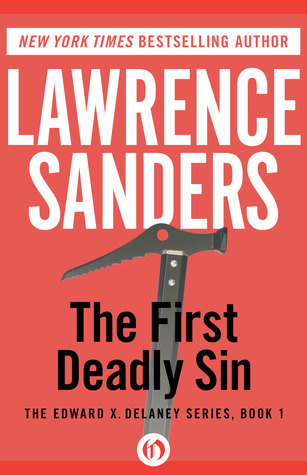What do you think?
Rate this book


630 pages, Kindle Edition
First published January 1, 1973

 The Anderson Tapes (Deadly Sins #1)
The Anderson Tapes (Deadly Sins #1) The First Deadly Sin (Deadly Sins #2)
The First Deadly Sin (Deadly Sins #2) The Second Deadly Sin (Deadly Sins #3)
The Second Deadly Sin (Deadly Sins #3) The Third Deadly Sin (Deadly Sins #4
The Third Deadly Sin (Deadly Sins #4 The Fourth Deadly Sin (Deadly Sins #5)
The Fourth Deadly Sin (Deadly Sins #5)